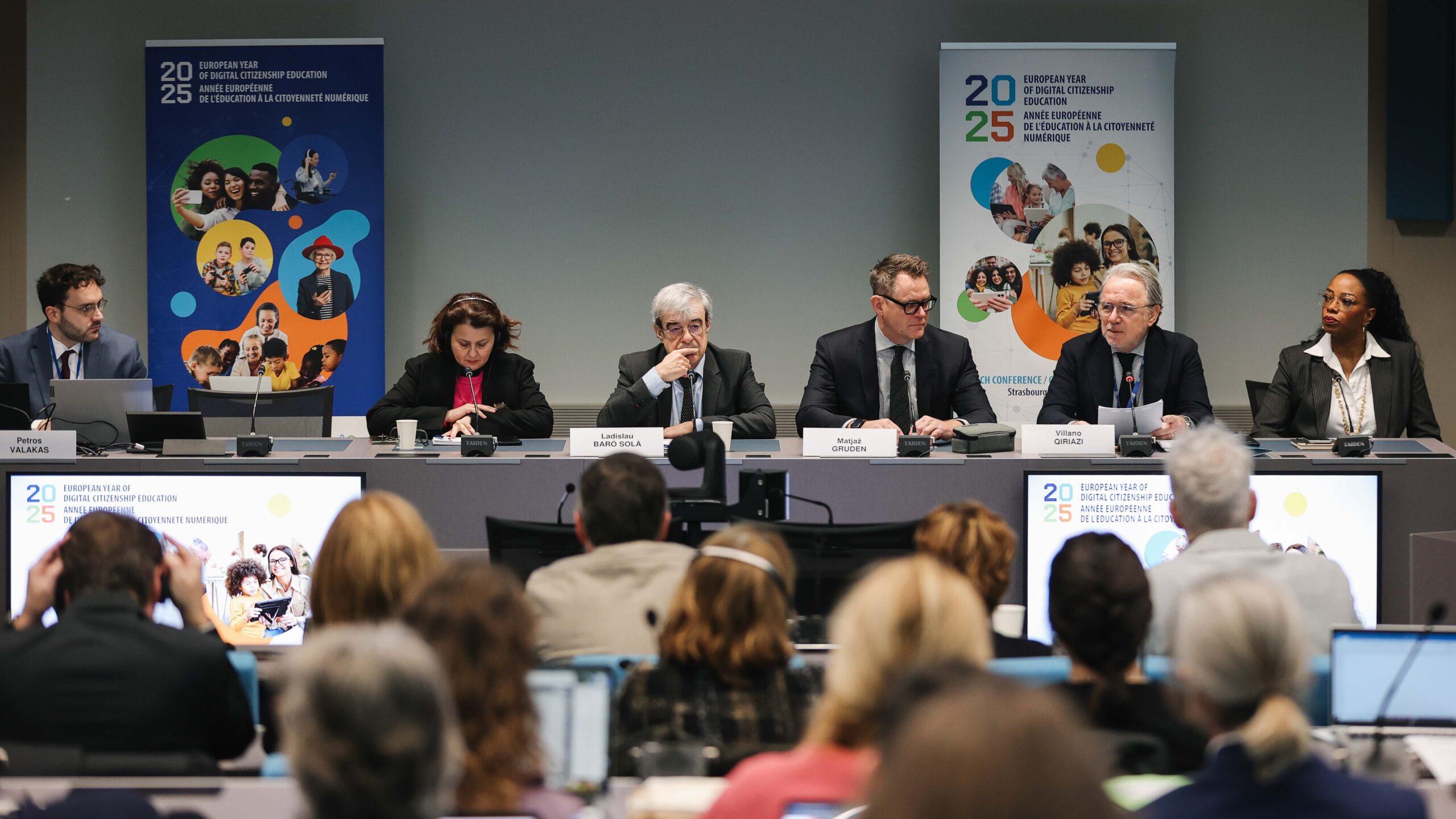European Year of Digital Citizenship Education aims to promote a critical, safe and constructive digital experience
The launch conference for the European Year of Digital Citizenship Education (EYDCE), under the theme Empowering Learners for a Democratic Future, was held on 23 and 24 January, in Strasbourg, France.
The goals of the EYDCE were presented during the meeting, which was attended by government officials, researchers, educators, media and technology industry professionals and youth organizations from across Europe.
The state of digital citizenship education (DCE) in Europe was also described, and expectations were set for the initiatives to be developed throughout the year.
Professor Fernanda Bonacho, holder of the UNESCO Chair in Communication, Media Literacy and Citizenship, at ESCS-IPL, participated in the conference, having the opportunity to learn about projects and partners dedicated to DCE.
On the first day, Elizabeth Milovidov, a digital parenting expert and law professor, highlighted the challenges of an increasingly complex society. She stressed that these challenges represent an opportunity for all stakeholders to collaborate in promoting child protection, resilience and ethical and responsible engagement in the online environment.
In addition to the discussion panels between experts from the Member States of the Council of Europe, the DCE Promoters Network, which aims to raise awareness about the importance of DCE and is led by the Portuguese Vítor Tomé, presented updates on DCE initiatives. The Network highlighted aspects such as, the DCE curriculum framework and learning resource repository; teacher training courses; the development of solutions for childhood; education for the emerging video game culture; and guidelines to support equitable DCE partnerships across sectors.
The first day ended with several working sessions, with very rich debates on how DCE should be integrated into the school curriculum and on the importance of educating parents and the elderly, as well as young students, so that digital learning is a lifelong learning process.
The second day was marked by a debate on the challenges and opportunities in digital communication, with special emphasis on the session with expert Andy Demeulenaere, from Mediawijs and the European Schoolnet digital citizenship working group, who highlighted the importance of collaborative work, and David Mekkaoui, from All Digital, which focuses on the development of skills through a consortium of more than 90 European organizations.
In the final plenary session, the concepts and strategic objectives of the plan for the EYDCE were discussed, including communication, international collaboration, stakeholder engagement, political priorities and integration of DCE into education and training.
Why this topic? And why now?
Taking into account the “challenges and opportunities that have emerged or been amplified by digital technologies and environment”, the Council of Europe identified the “urgent need for increased efforts and investment” in the digital skills of European citizens.
The entity hopes that this will be a “decisive turning point” for European countries and that it will serve as a “strategic platform” for key actors to work together — public and private entities, as well as civil society.
This is “unique opportunity to enhance the visibility and impact of digital citizenship education and reaffirm its value”, as we can read on the concept note of the conference program.
The decision to designate 2025 as the European Year of Digital Citizenship Education was taken in September 2023 at the Standing Conference of Ministers of Education of the Council of Europe Member States.
Digital citizenship: from passive users to responsible citizens
Digital citizenship aims to equip citizens with the knowledge, skills and values that enable a critical, safe and constructive experience of the digital world.
Therefore, digital citizenship includes not only the technical knowledge necessary for an effective online experience, but also ethical and legal values associated with digital environments and a critical and reflective attitude that guarantees individual and collective well-being.
The goal is to “create a digital space where respect, diversity and democratic values are at the heart of interactions”, as stated on the website dedicated to the EYDCE, where those who want to develop initiatives in the field of digital citizenship can find materials and resources.

